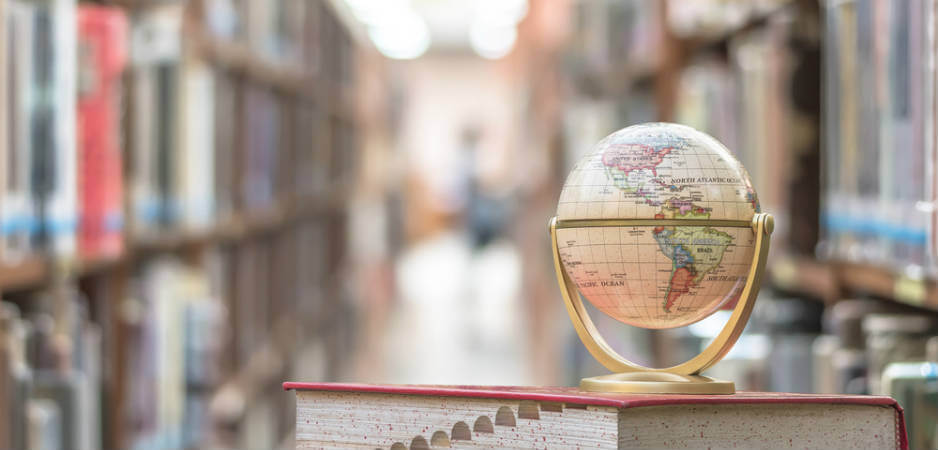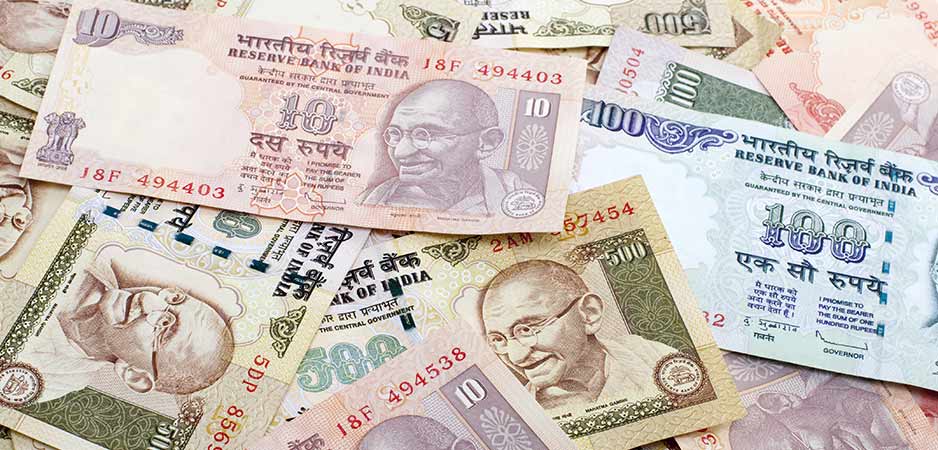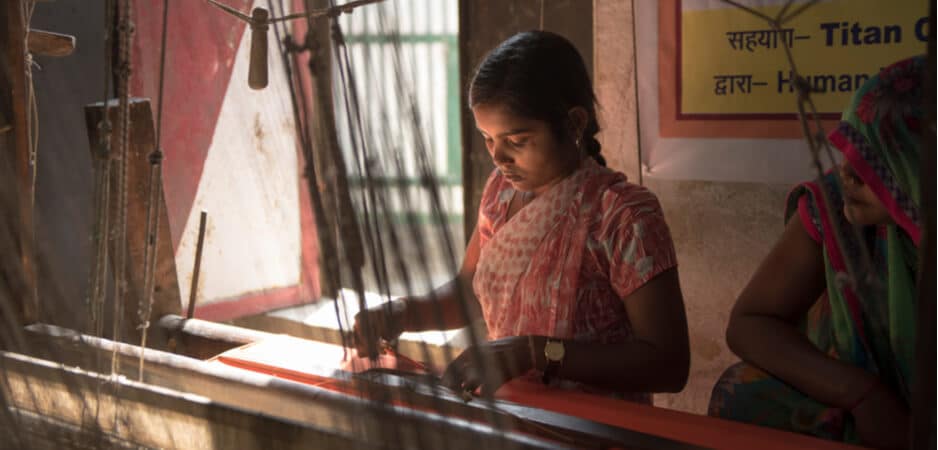In this edition of The Interview, Fair Observer talks to entrepreneur and philanthropist Frank Islam.
Frank F. Islam is an Indian-born American entrepreneur, investor and philanthropist dedicated to supporting education across the world. Islam came to the United States aged just 15 and, in 1994, started his very first business with just $500 dollars available to invest in it. After a decade, the firm, QSS Group, was turning over $300 million annual revenue, and it was this success that moved Islam to establish the Frank Islam and Debbie Driesman Foundation with his wife. Dedicated to promoting education, arts and culture, and conflict resolution, the nonprofit views philanthropy as a strategic investment in the future. The foundation has recently donated $2 million to the Aligarh Muslim University (AMU) in India to encourage education for all, and especially for disadvantaged minorities.
Islam has been actively involved in politics, lending his support to Barack Obama and Hillary Clinton, and he has worked to strengthen ties between India and the United States. In 2013, Islam was appointed to the Board of Trustees of the John F. Kennedy Center for the Performing Arts.
In this edition of The Interview, Fair Observer talks to Frank Islam about his journey to success in America and the importance of education for the young people of today.
Anna Pivovarchuk: You are very active in public matters: philanthropy, education and politics. What made you become such an engaged citizen? Who has been your role model or inspiration in life?
Frank Islam: President John F. Kennedy, in his inaugural address famously said, “Ask not what your country can do for you. Ask what you can do for your country.”
After I sold my company, the QSS Group in 2007, I was financially in a position to answer President Kennedy’s call by getting involved to make a difference and giving back. My focus for that involvement includes philanthropy, education and civic engagement because all of those areas that to the future of our country and its citizens.
I don’t look as my philanthropic giving as a charity. I look at instead as an investment that can yield exponential return. The return on that investment is problems solved, situations made better and people enabled to climb the ladder of success so that they can help others climb that ladder through similar investments themselves. Thus, the returns become exponential.
I focus on education because I see it as the great equalizer. Education is the gift that keeps on giving. It empowers the mind and lifts the soul. Education is an opportunity creator and a bridge to the future. Education propels individuals and moves nations forward. It gives those from disadvantaged or poor backgrounds the knowledge, skills, abilities and attitudes to purse opportunities and to achieve their dreams.
Finally, I focus on civic engagement because it is pivotal to the future of our citizens, communities and country. Sometimes, when I say civic engagement, people mistakenly think I mean political engagement. I do not: Political engagement is a form of civic engagement, but just one form. In my opinion, civic engagement takes five primary forms: individual engagement, organizational engagement, political engagement, community engagement and social engagement.
You asked about involvement in politics. I have been involved by supporting various candidates and advocating for legislation and policies that I think will be of benefit. Politics determine whether you have a country of opportunity or inequality, of concern for the common good or absolute individualism, a representative democracy or an oligarchy. Politics creates a common cause and a unified people. I recognize this and that is why I am involved — and I should add that we all need to be involved — in political activities, to ensure that we continue to build a more perfect union and develop the country in a way that benefits the many as opposed to just the few.
Let me quote President Kennedy to explain why I am involved there. He said, “In a democracy, every citizen regardless of his interest in politics, holds office; every one of us is in a position of responsibility; and in the final analysis, the kind of government we get depends on how we fulfil those responsibilities.” I agree with President Kennedy and I get involved because it is my responsibility toward this great American democracy.
Finally, as for my role model, I would have to say John F. Kennedy. As you know, the nation just celebrated his 100th birthday and all that he accomplished in his short term in office. The Kennedy Library highlights Kennedy’s legacy in five areas: public service, civil rights, peace and diplomacy, arts and culture, and science and innovation. Those are all areas that matter greatly to me and that is why he is my role model.
Pivovarchuk: What brought you from India to the US and why did you decide to stay?
Islam: When I was attending Aligarh Muslim University as a young man, Wolfgang Thron, a visiting professor of mathematics from the University of Colorado encouraged me to apply to go to school there. I did and was accepted.
So, the ostensible reason I came to the United States at the age of 15 was to pursue a degree in computer science. But the real reason that I came to this country was to pursue the American dream. I had heard so much about America being the land of opportunity that I wanted to come here to see what I could achieve.
I did not expect the streets to be paved with gold, but I did expect that if you aimed high and worked hard that you could make something of yourself. I stayed because from the time I arrived in Boulder, Colorado, in 1969 I was greeted warmly and treated with respect by everyone I met at the beginning of my journey.
I felt that same openness and saw numerous opportunities in this land as I continued my journey to get bachelor and master of science degrees from the University of Colorado, work for two big IT firms in the DC area and then buy the QSS Group, a firm that I took, along with a wonderful management team, from just one employee to over 3,000, with $300 million in revenue in 13 years.
And, of course, as part of that journey I met my wife Debbie Driesman, an immigrant from Canada, and we decided that the United States was the place for us to be. We stayed here because we had achieved the American dream and felt a responsibility to give back based upon our success.
Pivovarchuk: What, in your opinion, can India and America learn from each other?
Islam: The United States and India are the two largest democracies in the world. The US was established as a democratic republic nearly two-and-a-half centuries ago. For the past 100 years or so it has been the standard bearer for democracy globally. By contrast, the Indian democratic republic is less than 70 years old. For many years, India has looked to the United States for its examples of exemplary democratic behavior.
Because of changing circumstances in the US and around the world, I believe we are at a pivotal point. India has the chance to become a leader and example-setter and to become, as President Barack Obama labelled, it an “indispensable” partner for the United States on the global stage to demonstrate the full potential of democracies and democratic values. In fact, given the current isolationist shift being driven by President Trump, India could even move ahead of the US in terms of being a beacon for democracy.
India’s most recent national election with its more than 70% participation — a higher rate than has ever been achieved in the United States, I might add — showed that India may be poised to assume that leadership mantle. The next step required for India to achieve that status must come through the collective participation and contributions of concerned citizens of all races and religions to eliminate the enormous gaps of equality and opportunity that exist between those in the weaker sections and the disadvantaged classes.
Pivovarchuk: Your foundation focuses on education “as a strategic investment in the future.” What does education mean to you? And what message do you have for those young men and women around the world who are struggling to get access to it or perhaps don’t have access to education at all?
I have spoken extensively about education here and in India. As I said earlier, education is the great equalizer.
It is the bridge to success. It develops the knowledge, skills, abilities and attitudes that a student needs to succeed in life. To put it another way, when done properly, it meets the Three Cs test: It builds competence, character and confidence.
It would be presumptuous for me to send a message to all the young men and women around the world who are struggling to gain access to education. What I can say to those in India in the weaker sections of its society — especially Muslims — is to stay the course, keep moving on. There are those like me here in the United States who are committed to improving access.
One of those groups is the American Federation of Muslim Indians (AFMI) that focuses on supporting projects for students and schools at the primary high-school levels. I myself see the greatest opportunity and need for access at the higher education level.
By higher education, I don’t mean just the colleges or universities. I include technical, vocational and professional education at the secondary and post-secondary levels. Education in those areas also provides avenues for participation in 21st-century careers, the competencies to compete in a global economy and the capacity to contribute to lifting fellow Muslims out of poverty and deprivation.
My wife Debbie and I have committed to supporting a technical college for Muslim women in India. We have done that because we see Muslim women lagging in terms of their access to that type of education. I firmly believe that we need to empower them through education so that they can develop knowledge, skills and attitudes to pursue and create their own destiny. Too many Muslim families are trapped in poverty because of lack of education. With her own education, the woman can educate and equip her children to escape that trap.
I must say that I have been disappointed by the overall lack of educational progress for Muslims since the Sachar Committee Report of 2006. I am disappointed but not disheartened. I will continue to work with like-minded individuals here in the US and in India to bring more investments and to address the issues of access for those most in need of the benefits that a quality education can provide.
Pivovarchuk: Do you think civic education has declined in the US, compared with the rest of the developed world? If so, has it contributed to the rise of Donald Trump?
Islam: I do not have the data myself regarding civic education in the US compared to the rest of the world. I do know that over the past decade here in the US there has been an increasing emphasis on STEM education (Science, Technology, Education and Math) and much less attention paid to civic education. This is especially true in middle school where students form the values, attitudes and beliefs regarding citizenship.
Research by academics at Harvard and Melbourne Universities, as per the January edition of the Journal of Democracy, suggests that attitudes among millennials in “stable liberal democracies” such as the United States, Great Britain, Sweden, Australia and New Zealand were becoming increasingly negative.
The researchers’ specific findings regarding the United States show that more than a quarter of US millennials dismiss the importance of free elections to a democracy; that only around a third of millennials see civil rights as “absolutely essential” in a democracy; and that 75% of the people born in the 1930’s felt it was “essential to live in a democracy” — by the 1990’s only slightly over 25% of those born in that time period felt the same way.
As Bob Dylan would put it, “The times they are a changin’.” And, in terms of support for democracy here in the United States, they are not changing for the better. These findings will lead to disengagement from the democratic process or, or as the researchers termed it, a deconsolidation of or disconnect from democracy.
As for Donald Trump, he did not draw the bulk of his support from millennials or from recent high-school graduates. Research indicates he got the majority of his votes from voters who were older and whiter. Most of them probably received civic education in both grade school and high school. So, the issue for Trump was a populist backlash by older people who felt they were being ignored by those in office. Bernie Sanders benefitted from this backlash on the Democratic side with his support coming from many younger voters.
The bottom line for me from all of this, however, is the United States must do a much better job in the area of not just civic education but in education for civic learning and engagement. It is not just knowledge that matters. It is the understanding that if we are not civically engaged on the issues that matter our communities, country and citizens will all suffer the consequences.
Pivovarchuk: You have been vocal about education as a way forward for Muslims in India and have donated to Aligarh Muslim University. The Muslim community lost its middle class during the partition of India in 1947. How can it get back on the education bandwagon? Also, what kind of education do you propose? Madrassas in India and Pakistan already impart education for free in many places. Should we invest in them?
Islam: Yes, my wife Debbie and I were in India earlier to dedicate the Management Complex at Aligarh Muslim University (AMU), named after us. We contributed $2 million to AMU to build Frank and Debbie Islam Management Complex. We made that investment because we firmly believe higher education is the pivot point for all, including Muslims.
As I said in response to an earlier question, higher education prepares individuals to participate in 21st century careers. That participation empowers them and will enable them to empower others. Through higher education they can become difference-makers.
That said I think the madrassas are part of the educational system. I am not an expert on them, however. I know they take many forms and serve a number of purposes. But I firmly believe that madrassas should teach courses to students in areas and skills that will allow them to get good paying jobs and be part of 21st-century workforce.
Pivovarchuk: You have constantly spoken about democracy and plurality. Do you think we are living at a time when they are under threat? If so, what can we do combat this threat?
Islam: I am a firm believer in democracy, pluralism, diversity and equal opportunity for all regardless of race, religion or gender. I understand the enormous value and contributions that immigrants have made to the United States, our immigrant nation. I also understand the value that synergy or races and religions can create in solving problems in the United States and in India.
I do believe that the proposed Muslim ban in the United States is shameful, wrong, divisive and immoral. This is against the character of our country. This is fear-mongering. I also view the most recent attacks on Muslims in India by Hindu vigilantes is ugly, divisive and intolerant, and filled with hatred and bigotry. We need to stand firmly by rejecting the voices that seek to divide us. It is our responsibility to build a stronger, fairer, inclusive and tolerant America.
To combat these threats, I believe all concerned individuals need to stand up and speak up and speak out. We need to be civically engaged. In my opinion, the key actors and actions that can be taken in this regard the religious leaders promoting interfaith dialogue and bringing followers of different faiths together to have open conversation of controversial topics and issues of importance; political leaders promoting a framework for unity and ensuring that all law are fair and enforced uniformly; and civic leaders from all fields promoting communication and collaboration and sponsoring events and investing in plans and programs that cut across and eliminate racial, religious and socio-economic divides.
The views expressed in this article are the author’s own and do not necessarily reflect Fair Observer’s editorial policy.
Photo Credit: Chinnapong / Shutterstock.com
For more than 10 years, Fair Observer has been free, fair and independent. No billionaire owns us, no advertisers control us. We are a reader-supported nonprofit. Unlike many other publications, we keep our content free for readers regardless of where they live or whether they can afford to pay. We have no paywalls and no ads.
In the post-truth era of fake news, echo chambers and filter bubbles, we publish a plurality of perspectives from around the world. Anyone can publish with us, but everyone goes through a rigorous editorial process. So, you get fact-checked, well-reasoned content instead of noise.
We publish 2,500+ voices from 90+ countries. We also conduct education and training programs
on subjects ranging from digital media and journalism to writing and critical thinking. This
doesn’t come cheap. Servers, editors, trainers and web developers cost
money.
Please consider supporting us on a regular basis as a recurring donor or a
sustaining member.
Support Fair Observer
We rely on your support for our independence, diversity and quality.
Will you support FO’s journalism?
We rely on your support for our independence, diversity and quality.







